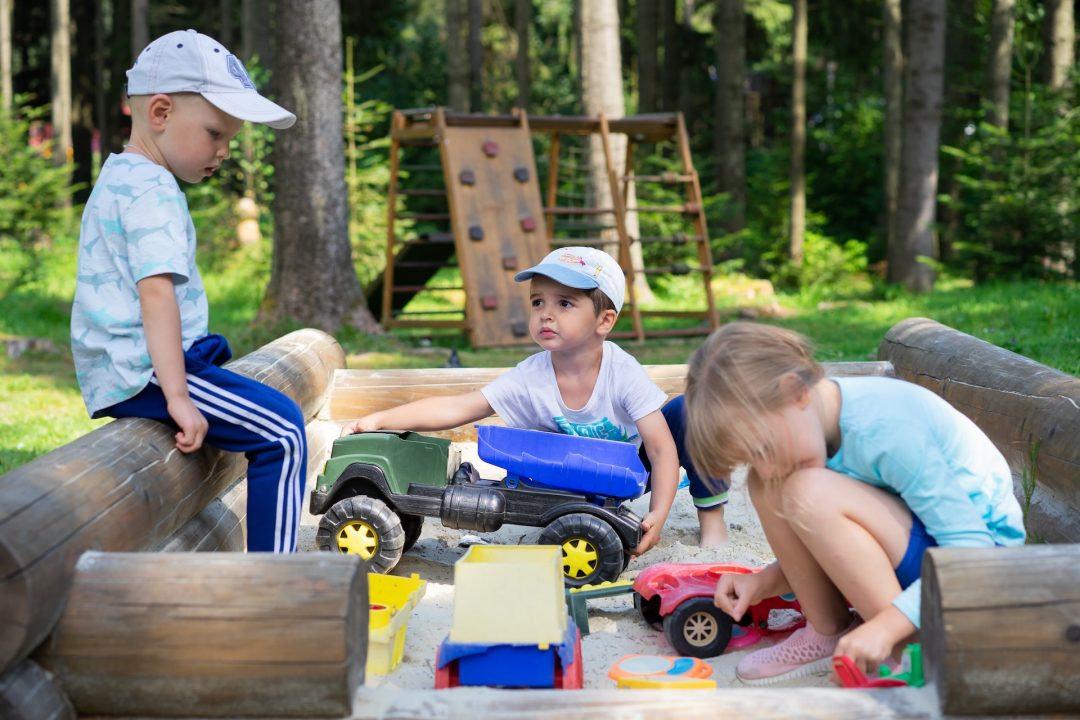In order for a child to be successful, they need a few key things. A strong foundation in academics is important, but so is social-emotional learning. A child needs to feel safe and supported in order to thrive. They need to be able to develop a strong sense of self and have a positive outlook on life. Finally, a successful child needs to have access to opportunities and resources.
A strong academic foundation is important for any child to be successful. This means that they need to be able to read, write, and do math at grade level. They should also have exposure to a variety of other subjects, such as science, history, and the arts. A child’s academic foundation should be set in place by the time they reach elementary school.
Social-emotional learning is just as important as academics for a child’s success. This type of learning helps a child develop skills like self-awareness, self-management, social awareness, and relationship skills. These skills are important in all aspects of life, from school to work to personal relationships.
A child needs to feel safe and supported in order to thrive. This means having a stable home life, with parents or guardians who are loving and supportive. It also means having access to basic needs like food, shelter, and clothing. A child who feels safe and supported is more likely to succeed in school and in life.
A strong sense of self is another important ingredient for success. A child needs to feel good about who they are and have a positive outlook on life. This can be fostered by things like positive reinforcement from adults, a healthy self-image, and a sense of belonging to a community.
Finally, a successful child needs to have access to opportunities and resources. This means things like a good education, extracurricular activities, and mentorships. A child who has access to these things is more likely to succeed than a child who does not.
To set them up for a bright future, we need to take into account all these tips.
A reliable environment. Children need to know they are protected (as much as possible) from the outside world
They need a reliable, safe place to come home to after school, where they can do their homework and play with friends. They need to feel safe in their homes, so they can thrive.
A reliable environment for children is one that is predictable and consistent. Children need to feel like they can depend on the people and things around them. They need to know that their parents will be there for them when they come home from school, that their favorite toy will be waiting for them in their room, and that their bed will be in the same spot each night.
A reliable environment helps children feel secure and confident. They know what to expect and can rely on the people and things around them to meet their needs. This feeling of security allows children to explore their world and try new things without fear.
A reliable environment is important for all children, but it is especially important for children who have experienced trauma or who have special needs. These children need to know that they can count on their caregivers to be there for them, no matter what. They need to feel safe and secure in order to heal and thrive.
Opportunities to grow. Kids will not grow unless we give them chances to learn

The first step is to identify their talents and give them a chance to express themselves.
A child needs plenty of opportunities to grow. They need to be given chances to learn new things and explore their talents. We can help them by providing a variety of activities and experiences that will allow them to develop their skills.
One of the most important things a child needs is a supportive family. Parents and caregivers who are encouraging and positive can make a big difference in a child’s life. They can help kids feel good about themselves and encourage them to try new things.
Children also need a safe and nurturing environment. This includes a clean and comfortable home, as well as a school or daycare center that is stimulating and supportive. Kids should feel like they belong and are valued. They should have adults in their lives who care about them and are interested in their development.
In order to be successful, children need plenty of opportunities to grow. We can provide them with these opportunities by giving them a variety of experiences and supporting their development.
Connectivity
A child needs a lot of things to be successful, but one of the most important is connectivity. Connectivity is the ability to connect with others and build relationships. It’s about more than just being able to communicate; it’s about being able to understand and be understood. It’s an essential skill for success in school, in work, and in life.
Most people are born with the ability to connect with others. But some children have difficulty making and maintaining connections. They may be shy or have trouble reading social cues. They may be on the autism spectrum or have other conditions that make it hard to interact with others.
There are ways to help children who have trouble connecting with others. Parents and caregivers can model good connectivity skills and provide opportunities for practice. Therapists can teach children how to read social cues and start conversations. And there are many technology tools that can help children connect with others, even if they can’t be in the same room.
The important thing is to help children find ways to connect that work for them. Because when children are connected, they can thrive.
Encouragement
A child needs encouragement to be successful. Encouragement can come from many people including parents, teachers, and friends. It is important for a child to feel encouraged in order to believe in themselves and their ability to succeed.
Encouragement is essential for a child’s development. It helps them to build self-confidence and to become more independent. It also allows children to feel supported and motivated.
There are many ways to encourage a child. Parents can do this by showing interest in their child’s activities, providing positive reinforcement, and setting high expectations. Teachers can also encourage students by providing opportunities for success, using positive reinforcement, and showing interest in their students. Friends can encourage each other by being supportive and offering words of encouragement.
Encouragement is an important part of a child’s life. It helps them to feel good about themselves, to become more independent, and to set high standards for themselves.
Problem solving skills
In order to be successful, children need to develop a range of problem solving skills. These skills allow them to identify and overcome obstacles, figure out new ways to do things, and find solutions to challenges they face.
There are a number of ways parents and caregivers can help children develop strong problem solving skills. One is to provide opportunities for them to practice these skills. This can be done through games and puzzles, open-ended play, and everyday problem solving activities.
It is also important to encourage children to think creatively and to approach problems from different angles. Help them to see that there is not always one right answer and that there are many different ways to solve a problem.
Encourage children to persevere when they are faced with a difficult task and to not give up easily. Help them to understand that it is okay to make mistakes and that they can learn from them.
Teach children to take their time when solving problems and to break them down into smaller, more manageable parts. Help them to see that there are often a number of steps involved in solving a problem and that they need to be patient.
Finally, provide support and encouragement. Let children know that you believe in them and that you are there to help them if they need it.
By teaching children problem solving skills, you can help them to become more confident and independent. These skills will serve them well throughout their lives.
